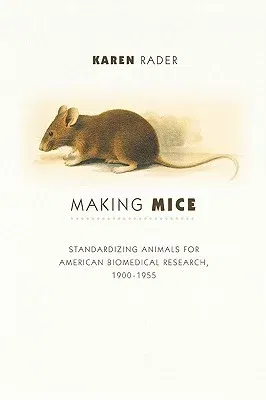Karen Rader
(Author)Making Mice: Standardizing Animals for American Biomedical Research, 1900-1955Hardcover, 21 March 2004

Qty
1
Turbo
Ships in 2 - 3 days
In Stock
Free Delivery
Cash on Delivery
15 Days
Free Returns
Secure Checkout

Print Length
312 pages
Language
English
Publisher
Princeton University Press
Date Published
21 Mar 2004
ISBN-10
0691016364
ISBN-13
9780691016368
Description
Product Details
Author:
Book Format:
Hardcover
Country of Origin:
US
Date Published:
21 March 2004
Dimensions:
23.83 x
15.65 x
2.41 cm
ISBN-10:
0691016364
ISBN-13:
9780691016368
Language:
English
Location:
Princeton
Pages:
312
Publisher:
Weight:
598.74 gm